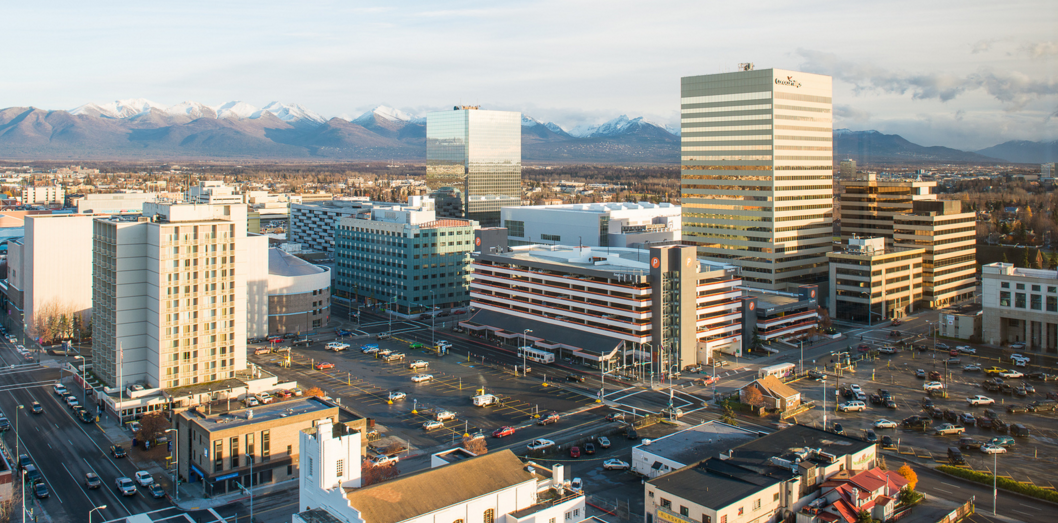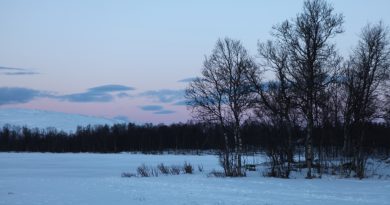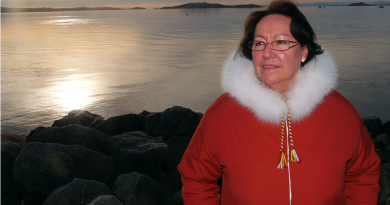Arctic Council talks climate, COP21, suicide in North

An Arctic Council meeting wound up in Alaska on Friday with a focus on issues like climate adaptation, the marine environment and the suicide epidemic in the Arctic.
“The Arctic Council is rising to the challenge of meeting significantly greater expectations,” said David Balton, chair of the Senior Arctic Officials and U.S. Deputy Assistant Secretary for Oceans and Fisheries, in a statement on Friday.
“With attention on the Arctic region at an all-time high, this meeting demonstrated the ability of the Arctic Council to bring together Arctic States, Arctic Indigenous representatives and a large number of Observers to work toward a safer, healthier and sustainable Arctic.”
Paris climate conference
Climate challenges and environmental issues dominated this week’s discussions and included the upcoming 2015 United Nations Climate Change Conference (COP21) in Paris at the end of the year.
The goal of the Paris conference is for the international community to reach an agreement on CO2 emissions.
This week, the Arctic Council decided to have the United States deliver a statement elaborated by the circumpolar countries earlier this year during the Global Leadership in the Arctic: Cooperation, Innovation, Engagement, and Resilience conference, to COP 21, on behalf of the Council, Balton said during a news conference in Anchorage on Friday.
The forum has also planned for visibility in Paris throughout the conference.
“It was also decided, on a proposal by Iceland, that the Arctic Council should have some presence at COP 21,” Balton said. “There will be Arctic Council representatives and materials there to talk about the work of the Arctic Council particularly related to climate change.”
Arctic communities
Besides environment, the council also talked about the mental health challenges facing the North’s remote, predominantly indigenous, communities.
“The problem is accute,” Balton said. “There’s a lot more work being done.”
A project by the Arctic Council’s Sustainable Development Working Group focuses on youth engagement and community work that could help prevent suicide before it happens, he said.
Balton’s comments came the day after Canada’s eastern Arctic territory of Nunavut proclaimed a suicide crisis in the region.
Canadian chairmanship
This week’s SAO meeting was the first since the United States took over the Arctic Council’s roating two-year chairmanship from Canada in May 2015.
The main pillar of Canada’s chairmanship was ‘development of the North, for the people of the North’ and establishing an Arctic Economic Council that would give input to the Arctic Council on economic issues.
Though some lauded Canada for highlighting economic development for northern communities, others criticized the Canadian program for its lack of emphasis on climate change and its overly narrow spotlight on Canadian domestic concerns, rather than incorporating a more global focus on Arctic issues common to all regions.
In the news conference on Friday, Balton said that though the U.S. Council chairmanship would continue with Canadian initiatives like the Arctic Economic Council, it would be broadening its focus in several areas.
“The Canadians focused their chairmanship around the theme of development for people of the North, and I can understand in Canada why it was a good topic for them,” Balton said.
“They made some very significant progress and we did want to continue that progress, but there are other things we wanted to focus on too, particularly climate change and Arctic Ocean issues. There’s nothing inconsistent between what the Canadians and we are doing but we may have a little larger lens.”
SAO meetings
The meetings of the Arctic Council’s Senior Arctic Officials are among the most important of the forum’s meetings.
Representatives from the Arctic Council’s eight member nations and six indigenous organizations gather to discuss the councils’ work on science and environment.
The Council also has almost three dozen approved Observers which include non-Arctic states, NGOs and intergovernmental organizations like the Red Cross and Red Crescent societies.
Observers are invited to watch the work of the Arctic Council and are invited to participate in the forum’s working groups.
During this week’s meeting, observers were given a half-day at the table with Arctic Council members to give their perspectives on the council’s work and how Observers could better contribute to the forum’s projects in areas like black carbon reduction and bird migration.
“I believe it’s never been attempted in the history of the Arctic Council,” Balton said. “A lot of (the Observers) have been wanting to have greater engagement and greater input.”
The next Senior Arctic Officials meeting takes place in March 2016.
Arctic Council: Quick Facts
Year formed:
1996
Arctic Council Members:
Canada, Denmark (Greenland), Finland, Iceland, Norway, Sweden, Russia, United States
Permanent Participants:
Aleut International Association, Arctic Athabaskan Council, Gwich’in Council International, Inuit Circumpolar Council, Russian Association of Indigenous Peoples of the North, Saami Council
Current Chair:
United States (2015-2017)
Next Chair:
Finland (2017-2019)
Write to Eilís Quinn at eilis.quinn(at)cbc.ca
Related stories from around the North:
Canada: The Arctic Council’s capacity challenge, Blog by Heather Exner-Pirot
Iceland: Iceland blasts Arctic Five for exclusion from fishing agreement, Eye on the Arctic
Norway: Arctic Council aims to boost business, Barents Observer
Sweden: Arctic Council – From looking out to looking in, Blog by Mia Bennett, Cryopolitics
United States: US pushes ambitious Arctic Council goals, Alaska Dispatch News



